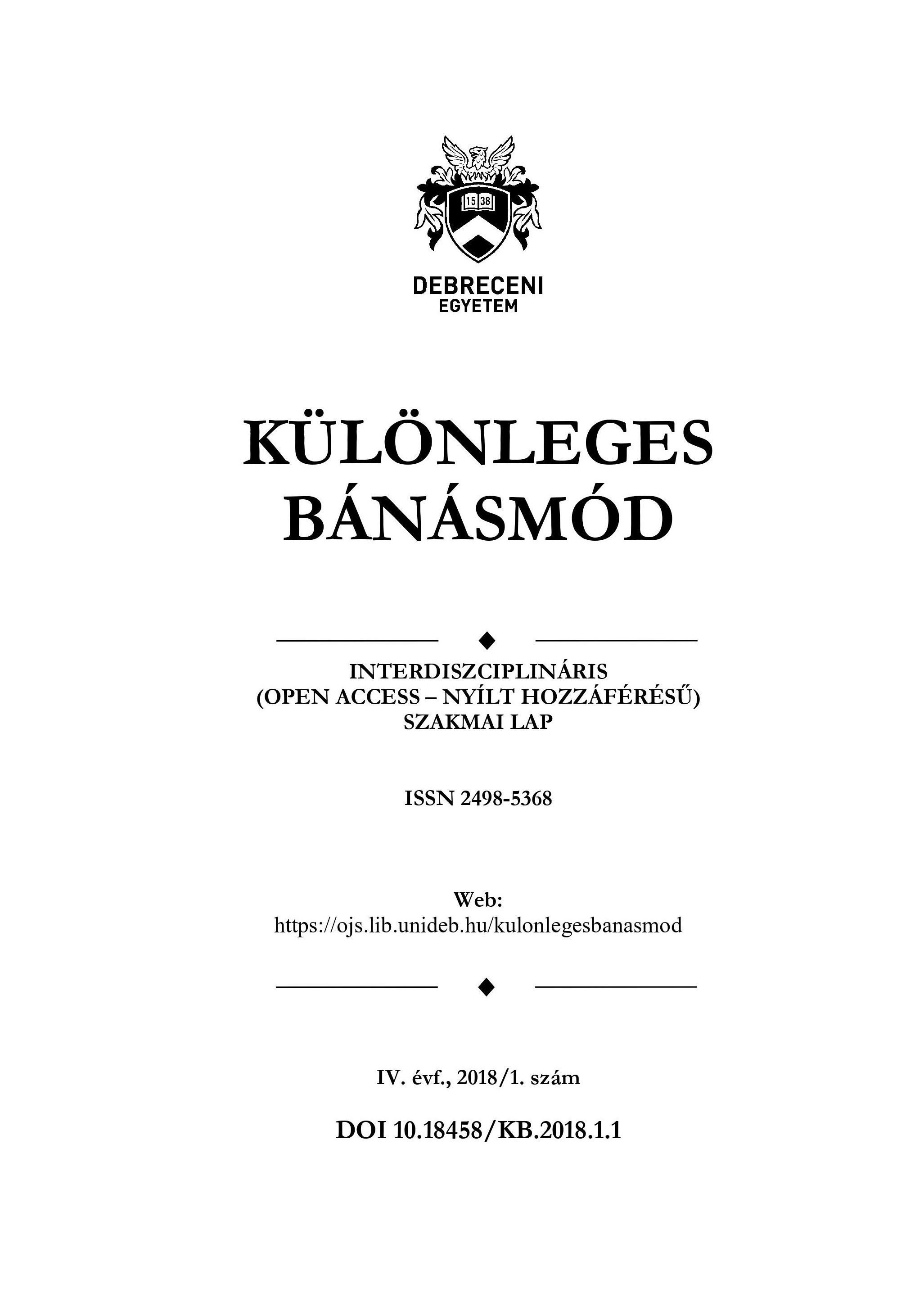HISTORY OF LANGUAGE LEARNING AT AN EARLY AGE ON NYÍREGYHÁZA
Authors
View
Keywords
License
Copyright (c) 2020 Dr. Nemes Magdolna, Nagy Anikó

This work is licensed under a Creative Commons Attribution-NonCommercial-NoDerivatives 4.0 International License.
How To Cite
Abstract
In our paper, we deal with the significance of learning languages at an early age. While going through the literature of the topic, we draw attention to the importance of age in learning a language, as well as the basic differences between language learning and language acquisition. In the following, we present the options outside the family (such as language schools and family creche 'családi bölcsőde') for learning a language at an early age in Nyíregyháza in 2017. In our research, we also wanted to find out what differences can be seen in terms of the methodology of early foreign language activities in kindergartens/preschools between the activities held during the change of the political regime in Hungary (1989/1990) and today. We chose the interview as a research method because in this way we can get a picture of the foreign language activities in kindergartens/preschools and their first steps in the 1990s when they were first available to children. We made eight interviews in spring 2017, asking kindergarten pedagogues/early childhood educators and language teachers as well as who had held English activities in kindergartens/preschools. Based on the information we received from the informants, we can say that early English activities were available in 23 kindergartens/preschools out of the 34 kindergartens/preschools (68%) operating in Nyíregyháza, Hungary in 2017. In some kindergartens/preschools children can also take part in early French and German activities. We have also realized that the number of those kindergartens/preschools which organize playful foreign language activities on a weekly basis has been increasing since the 1990s. From the recollections of the informants, it has also been revealed to us that during the change of the political system providing personal criteria (that is finding qualified teachers) was the most difficult task. Nowadays, several kindergartens/preschools employ kindergarten pedagogues who are able to take part in the language development of children in a foreign language as they are competent users of it. Playfulness, using audiovisual devices, and a lot of props have been highly important since the very beginning in the kindergartens, and pedagogues have also been doing their best to use and try different methods in order to develop the foreign language competence of children aged 4-7.


 https://doi.org/10.18458/KB.2018.1.7
https://doi.org/10.18458/KB.2018.1.7